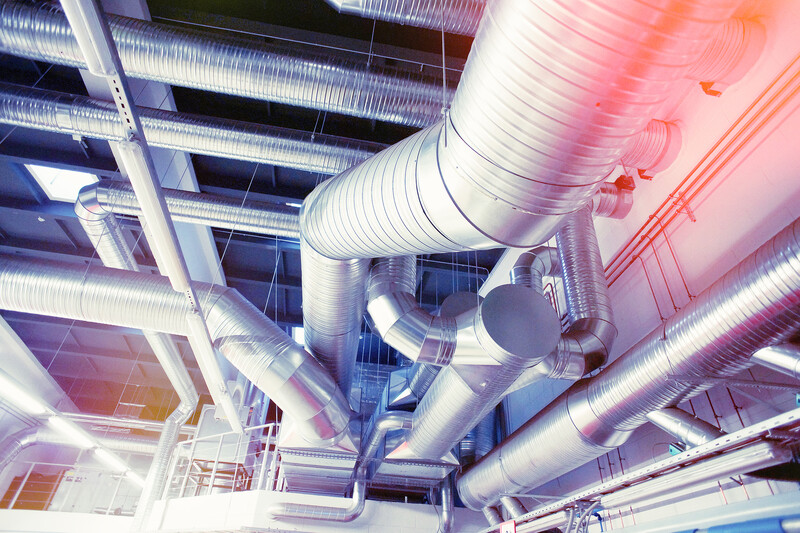If you are a pub landlord or hospitality manager or even a wine enthusiast with a growing wine collection, having a dedicated cellar with a reliable cooling system is essential.
Proper storage conditions, including temperature and humidity, are crucial to ensure that your cider, beer and wine are stored and maintained properly.
In this article, we will delve into what cellar cooling is, how it works, and why it is essential to have a dedicated cellar with a reliable cooling system.
What is Cellar Cooling?
Cellar cooling refers to the process of controlling cellar temperature and humidity in a beer or wine storage space to maintain optimal storage conditions. Proper cellar coolers are refrigeration systems designed to maintain beer quality and ensure that the beer or wine does not spoil or become oxidized, which can significantly impact its quality and flavour.
Dedicated wine and beer cellar coolers are designed to control cellar temperature between 55°F and 60°F with a relative humidity of 55% to 75%. Consistent temperature and humidity levels prevent wine from becoming overexposed to light, which can damage its flavour and aroma.
It is also important to control cellar temperature and humidity levels as it protects the wine from fluctuations that can cause cork shrinkage or expansion, affecting its quality and taste.
How Does Cellar Cooling Work?
Cellar cooling systems work by lowering the temperature in the beer cellar and maintaining a constant temperature range. They also circulate air to ensure consistent humidity levels, prevent mould growth, and remove any unwanted odours.
The two primary types of cellar cooling units are self-contained and split-system:
Self-contained systems are compact and easy to install, while split-system units are more powerful and designed for larger beer and wine cellars. Self-contained units consist of an evaporator and condenser built into a single unit. These systems are easy to install, relatively low-maintenance, and require minimal ductwork. They are suitable for beer and wine cellars with small to medium-sized collections.
Split-system units consist of separate evaporator and condenser units that are connected by refrigerant lines. These systems are more powerful and can cool larger beer and wine cellars with a more extensive collection. Split-system units are typically more expensive and require professional installation, but they offer greater flexibility in terms of placement and cooling power.
Why is Cellar Cooling Essential?
Wine and beer are highly vulnerable to temperature fluctuations and excessive humidity, which can cause them to spoil, age prematurely, or develop off-flavours. Proper cellar cooling is essential to preserve the quality and flavour, as well as protect your investment. Without a dedicated cooling system, cider, beer and wine can spoil or become oxidized, which can significantly impact their flavour and value.
Cellar cooling systems offer a range of benefits for storing wine, including:
- Maintaining a constant temperature and humidity level, which allows the wine to age and mature properly
- Preventing wine from becoming overexposed to light, which can damage the wine’s flavour and aroma
- Protecting wines from fluctuations in temperature and humidity, which can cause cork shrinkage or expansion, affecting the wine’s quality and taste
- Providing energy-efficient cooling that is tailored to the size and needs of your cellar.
Factors to Consider When Selecting a Cellar Cooling System:
When selecting a cellar cooling system, there are various factors that must be taken into account, including:
Size of Your Cellar:
The size of your cellar will determine which cooling system you require. Smaller cellars may utilise self-contained units while larger cellars will necessitate split systems.
Location of Your Cellar:
Your cellar’s location plays a crucial role in determining the cooling system required. If it is located in an environment prone to high levels of warmth and humidity, an even more powerful cooling system may be required to keep temperature and humidity levels within normal range.
Type of Alcohol You Are Storing:
Your alcohol type plays an important role when selecting an ideal cooling system. Certain wines require more precise temperature and humidity regulation. It is crucial that you choose an efficient system which provides these conditions.
Noise Level:
Cellar cooling systems can be noisy, making it essential to select one with minimum low noise output if your cellar is close to living spaces or to not disturb customers.
Frequently Asked Questions
Q: How do I choose the right cellar cooling unit?
A: The right cellar cooling unit will depend on the size of your cellar, location, and desired features. It’s best to consult with a professional and have your space evaluated to determine the best option for your needs.
Q: How often should I maintain my cellar cooler?
A: At a minimum, you should have your cellar cooling system maintained annually to ensure it is performing at its best. However, it’s recommended that you have regular checks throughout the year to ensure your system is running correctly.
Q: Can I install a cellar cooler myself?
A: While some self-contained units can be installed by a DIY enthusiast, it’s best to have your system installed by a professional to avoid any errors that could compromise your wine collection’s safety.
If you’re looking to install a cellar cooler in your pub or any other hospitality establishment, we recommend Green Cool UK. They provide reliable, trustworthy and cost-effective JCC cellar cooler installation and maintenance.
Conclusion:
Proper cellar cooling is essential for any pub landlord or wine collector who wants to keep their assets in optimal condition for many years to come. A reliable cooling system will ensure that your wine ages and matures properly while protecting it from environmental factors that may cause spoilage and affect its flavour.
Whether you’re a wine or beer enthusiast with a small collection or a serious collector with an extensive cellar to maintain, there’s a cellar cooling system for you. Consult with a professional to find out the best option to meet your specific needs.








Add Comment